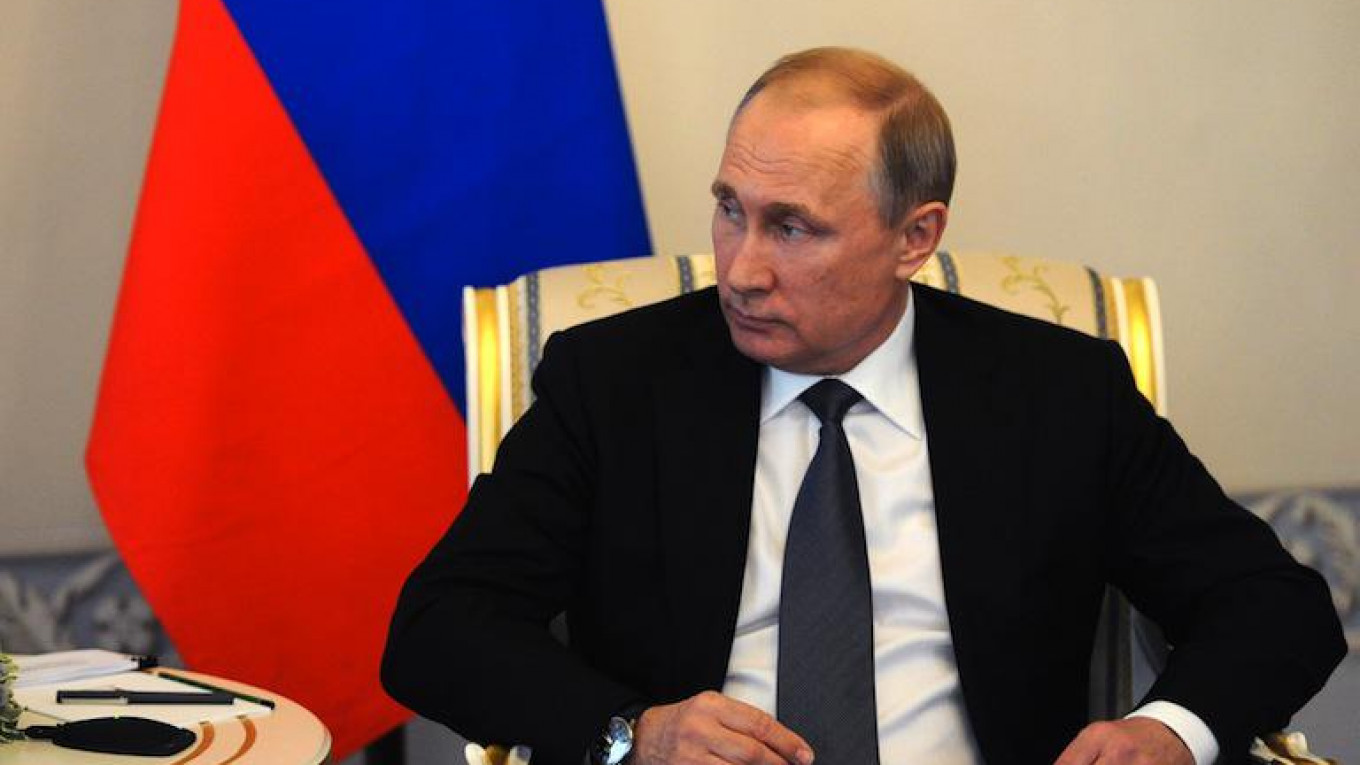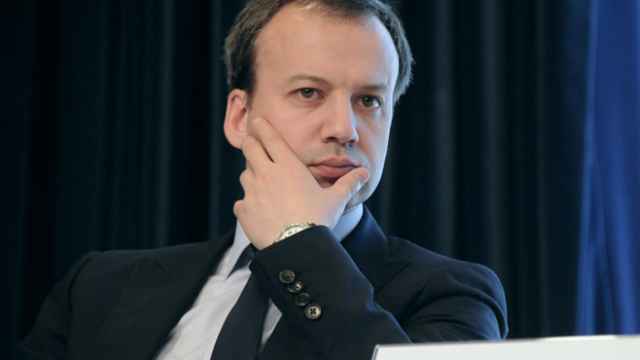President Vladimir Putin announced during a meeting last week that taxes would not increase before 2019, with the exception of the oil industry. This contradicts an address he made to the Federal Assembly in 2014, in which Putin promised not raise the tax burden on businesses for another four years.
Tax Discussions
Officials have been holding closed meetings since spring to discuss the Finance Ministry proposal to raise taxes on businesses and individuals — specifically on VAT, payroll fees, and personal income tax. The talks gained momentum this autumn.
The Finance Ministry recommended introducing a unified rate for insurance payments, then gradually reducing that amount while simultaneously increasing VAT. The ministry estimated this would generate 600 billion rubles ($9.34 billion) for government coffers in 2017, and 1.2 trillion rubles ($18.7 billion) for the 2017-2019 period. “As I understood it, the idea was not fully worked out and they set it aside for now,” director of the Center for Strategic Research and former Finance Minister Alexei Kudrin said.
Finance Minister Anton Siluanov offered assurances that the meetings were held to discuss the redistribution of taxes. The Finance Ministry argues that businesses are suffering enormous losses due to excessive payroll withholding fees, and that the government could stimulate growth by reducing that burden. But that is not a question for 2017 or even 2018, Siluanov said, reiterating that the ministry has no plans to raise taxes. “It just seemed that way to us,” one participant in the meeting with the president and prime minister said sardonically.
A Delicate Balance
Officials will submit the draft of the three-year budget to the State Duma without any major changes in taxes. With oil prices low, the state’s revenues are also down. The Finance Ministry is predicting that revenues this year will total 12.3 trillion rubles ($192 billion) against expenditures of 15.787 trillion rubles — the level at which spending was frozen through 2019. The deficit will total 3.2 percent of GDP, with plans for that figure to decrease by 1 percentage point annually in 2018 and 2019.
To stay within budget, government ministries and agencies will have to cut spending in nominal terms by 6 percent in 2017 and by 9-11 percent in 2018-2019, Siluanov said. Defense spending will also be cut.
The Finance Ministry plans to collect the additional 800 billion rubles it will need in 2017 through higher fees on the oil and gas sector (400 billion rubles), increases of up to 50 percent on the dividends of state companies (250 billion-300 billion rubles), and higher customs and insurance fees (100 billion-150 billion rubles).
The government also plans to finance the deficit with the help of reserve funds and by borrowing 1.2 trillion rubles ($18.7 billion) on the domestic market and up to $7 billion on the external market. That would be enough money to last for three years, Siluanov said.
In making those plans, the Finance Ministry was
counting on proceeds of approximately 1 trillion rubles ($15.6
million) from the privatization of Rosneft and Bashneft in 2016.
However, the ministry does not anticipate a problem if that money
only becomes available in 2017: It would simply rely more heavily on
reserve funds this year, and less next year.
One Percent for the Poor
The Finance Ministry has asked wealthier regions to share with poorer regions in the form of a 1-percent profits tax payable to the federal budget for distribution as subsidies to the regions that are most in need. Regions currently pay a 20-percent profits tax, of which 18 percent remains in the regional budget and 2 percent goes to the federal budget. The new measure would generate an additional 115 billion rubles ($1.8 billion) in 2017.
“That is essentially expropriation,” one regional official said.
The Finance Ministry had earlier announced a 15.5-percent decrease in inter-budget transfers to the regions. Deputy Finance Minister Maxim Oreshkin said that everyone has been feeling the pinch these last two years, but that federal budget revenues were down 7 percent annually, whereas regional budget revenues had risen by 6 percent each year.
It is difficult for regions to avoid running deficits, as nominal incomes rose by only 2.7 percent against a 5.7 percent increase in expenses, according to Natalia Zubarevich, director of the regional program Independent Institute for Social Policy. The overall surplus in regional budgets is a result of enormous surpluses in Moscow, St. Petersburg and several other regions, even while 52 other regions will run deficits in November-December 2016. The financial situation in 15 regions is now critical, Kudrin said.
Where to Find the Money?
One finance and economics official said the Finance Ministry would begin facing its most difficult problems in 2018. If oil remains at $40 per barrel, the budget shortfall in 2018-2019 would exceed 2 trillion rubles ($31.3 billion), a different federal official calculated.
The only option is to cut costs further, said Alexandra Suslina of the Economic Expert Group, adding that reserves are unavailable and that no other sources of funds exist. She said that the alternative of borrowing more would only drive up interest-related expenses in the budget. Kudrin argues that it is necessary to shift Russia toward a production-based economy, but that the goal would remain out of reach unless there is a change to the country’s governance practices and infrastructure.
A budget is a simple thing: to balance it, you must either increase revenues or reduce costs, said Vladimir Tikhomirov of BCS. If leaders have decided not to increase taxes, then they must increase debt, and they already have political consent for that, Tikhomirov believes.
“It is not acknowledged publicly, but the Finance Ministry and the government are placing their hopes on the price of oil rising over $40,” Tikhomirov said.
A Message from The Moscow Times:
Dear readers,
We are facing unprecedented challenges. Russia's Prosecutor General's Office has designated The Moscow Times as an "undesirable" organization, criminalizing our work and putting our staff at risk of prosecution. This follows our earlier unjust labeling as a "foreign agent."
These actions are direct attempts to silence independent journalism in Russia. The authorities claim our work "discredits the decisions of the Russian leadership." We see things differently: we strive to provide accurate, unbiased reporting on Russia.
We, the journalists of The Moscow Times, refuse to be silenced. But to continue our work, we need your help.
Your support, no matter how small, makes a world of difference. If you can, please support us monthly starting from just $2. It's quick to set up, and every contribution makes a significant impact.
By supporting The Moscow Times, you're defending open, independent journalism in the face of repression. Thank you for standing with us.
Remind me later.






